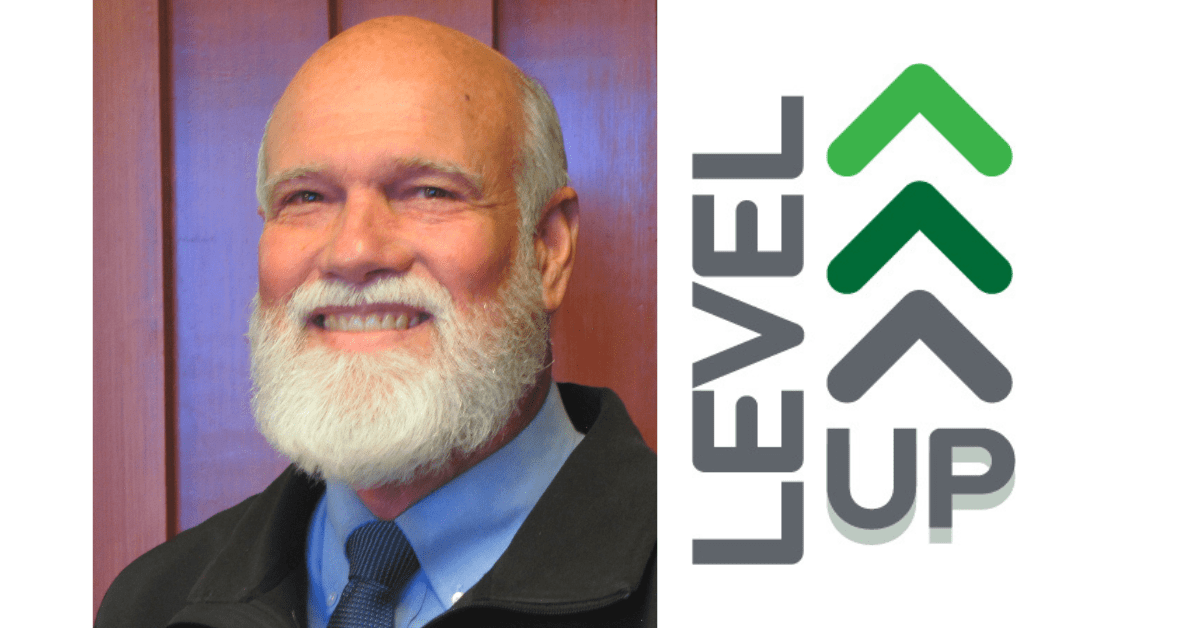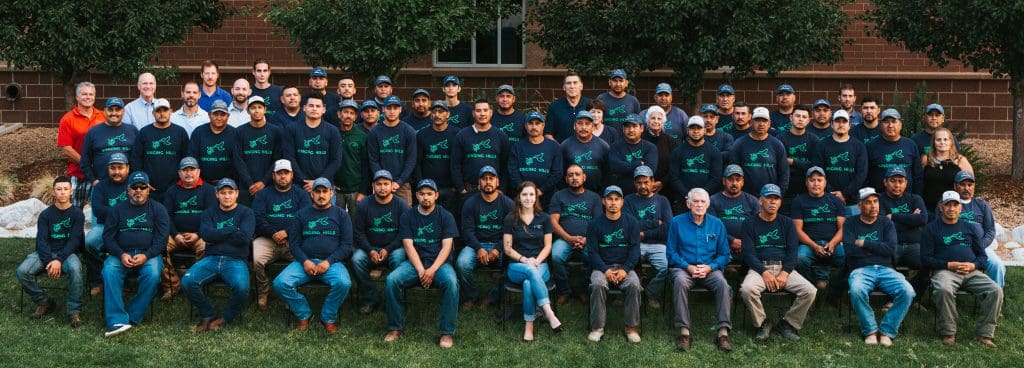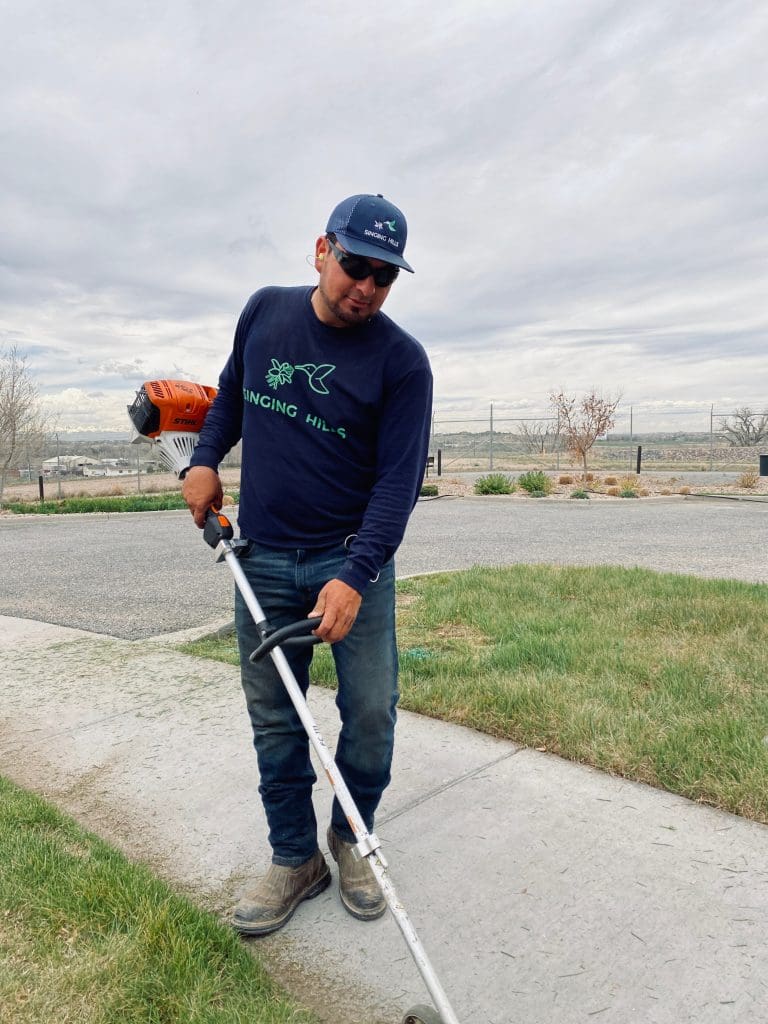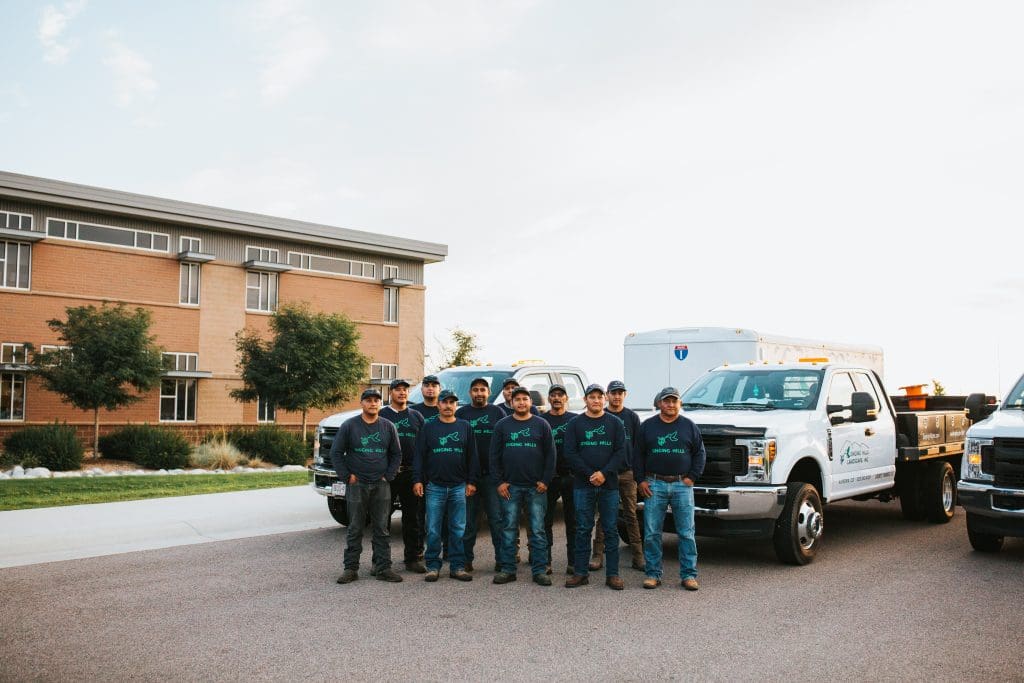
Our Level Up series shares the strategies that help landscape and lawn care companies get to the next level.
Mike Leman moved from Illinois to Colorado in 1982 with the goal of working in agriculture. Unable to find an ag job that would pay the bills, he ended up becoming a landscape laborer. He spent ten years working for his first employer and advanced as far as he could when he decided to start his own company.
“With a growing family to support, I needed more income,” Leman says. “I’m not sure why I thought that owning a business would pay better…it took a lot of years to do more than just pay the bills!”
When he launched his company Singing Hills Landscape, Inc., based in Aurora, Colorado, in 1995, his goal was to be a one-man craftsman business, designing and installing exceptional landscapes. Yet the following year, when he had the opportunity to take on a large job, he hired his first seasonal employee.

“He was from Mexico and invited us to visit his family that winter,” Leman says. “It worked out for us to take him along with our four boys in the minivan and drive down to the state of Zacatecas, where we experienced incredible hospitality from many warmhearted people who survived on very little income. It prompted a shift in focus from providing for our own family to providing for many other families if God would open that door by providing work.”
Since then, the company has grown to about 40 employees. Leman says when they receive their H-2B workers, that number doubles. He says the company has seen a lot of revenue fluctuation due to the volatility of the H-2B visa program and it ranges from $6 to $8.5 million.
“Our goal is to grow at a sustainable pace,” Leman says. “We understand that growth is necessary for employees to move up, so we don’t have a cap set. That being said, we don’t want to grow at a pace that compromises our core values.”
When they’ve experienced demand jumping higher than they were prepared to handle, Leman says they will turn the work down rather than grow beyond their capacity.
Keys to Success
Leman says their core values, employees and clients are the three main elements that have contributed to their company’s growth. Singing Hills’s core values are selflessness, work ethic, integrity, problem solving and communication.

“We try to live and work by the biblical values of integrity, honesty, and excellence – treating others the way we want to be treated,” Leman says. “We’ve not always succeeded in getting it right the first time, but we always try to get it right.”
Leman says many of their employees share their values and it is their sweat equity that has contributed far more than their initial investment.
Singing Hills has a broad customer base across the Denver metropolitan area, with their revenue split about 50/50 between residential and commercial clients. Leman says starting out they focused on irrigation and residential design/build but they’ve added commercial landscape construction, commercial landscape maintenance, snow/ice management, along with an increased capability to do high-end residential landscape construction.
Many of the residential clients come to the company through top-tier landscape design and landscape architecture firms while others are referred by past clients. Singing Hills also has strong relationships with the local school district, several municipalities and general contractors.

“We count it a privilege to know so many good people who refer friends and family, come back year after year for more work, and give us excellent feedback on how to do better,” Leman says.
Leman says he has also found value in his membership in their state association as well as NALP from the very first years in business.
“The learning shared by those with more experience has been invaluable,” he says. “Certification, shared lobbying efforts, and networking have all contributed to our growth.”
He adds that NALP’s annual meeting and resources, such as the HR advice given by Richard Lehr, have also been helpful. He says the connections formed through networking facilitated by NALP have been the most beneficial.
Opening Doors of Opportunity
Leman says the biggest challenge they’ve dealt with since 2005 has been labor, as the H-2B program has become oversubscribed. They utilize a number of recruiting methods, including social media posts, signs on vehicles and an aggressive referral program that pays $700 to $1,000 if a referred employee lasts a full year.

“We also connect with high school, vocational school, and college networks for certain positions,” Leman says. “We have participated in the NCLC several times. State job boards and newspaper advertising round out the arsenal.”
After attracting these employees, the company works hard to retain their staff. The average Singing Hills employee has been with the company for nine years, and 19 employees have been at the company for more than 15 years.
Leman says they retain their employees long-term by treating staff as family members, not just employees. He says they give opportunities for growth, education, and a lot of free vitamin D. Singing Hills also practices open-book management.
“From the very beginning, I believe that sharing company information is a key means of building trust and a sense of ownership,” he says. “We’ve been transparent about company financial information and try to engage everyone in thinking like an owner.”

As the company has grown, Leman says the key to maintaining their company culture is for the culture to reflect reality.
“If one attempts to form a culture that is not congruent with one’s personal beliefs, it will not be sustainable whether growth occurs or not,” Leman says. “If the culture is congruent with one’s internal compass, it will not waver as growth occurs. That internal compass will guide hiring decisions. Hiring decisions guide ongoing culture. It all comes back to authenticity/integrity.”
Click here to read more Level Up stories.

